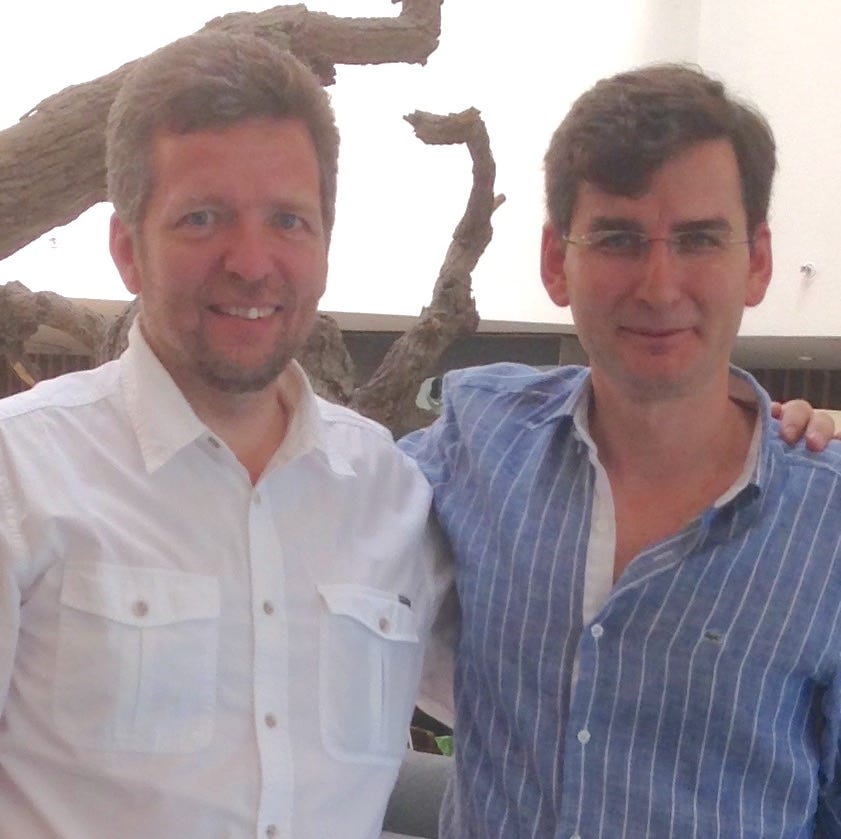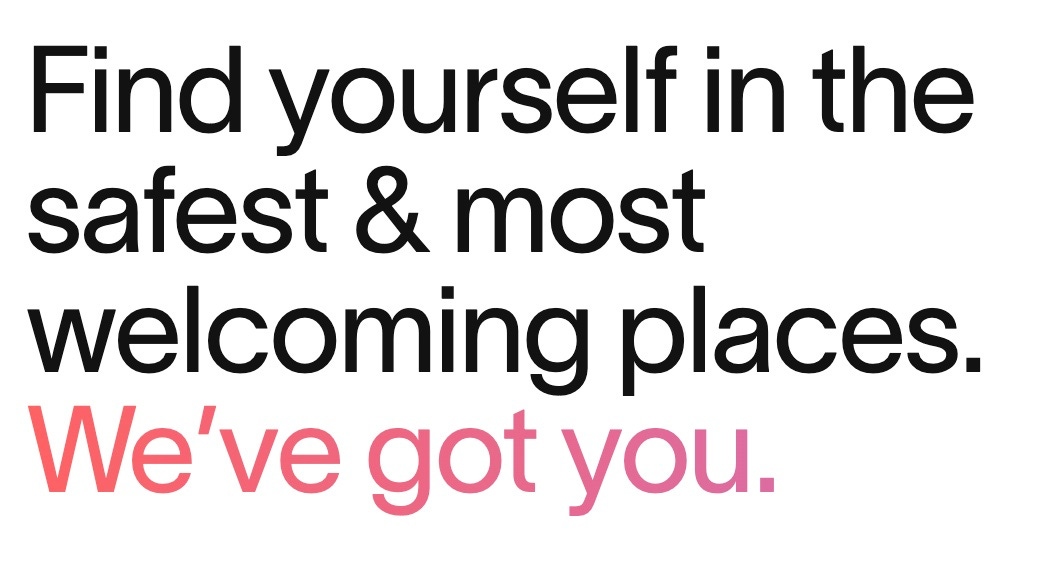The Changing Landscape of Hospitality
Part 1 - Trust a Boomer - Life Wasn't Better In The Good Old Days...
First off, I want you all to know how much I appreciate everyone that supports my writing! It really does mean a lot.
The Always Care Community newsletters live in a slightly schizophrenic space that bounces between hospitality, security, and the millions of memories that fill the head of a baby boomer.
Balancing hospitality and security was my job for many years, or so I thought. As time went by, I learned it wasn’t so much about balance as it was about integrating and understanding that at their core, hospitality and security are two foundational and far too often undervalued pieces in the fabric of our society.
At their core, hotels and hospitality businesses take care of people by providing them with food and shelter when they are not at home. Yes, they want to provide exceptional experiences and memorable moments, but if they don’t get the basics right, those experiences will be memorable for all the wrong reasons.
Safety and security are about being, and also feeling, safe from harm or hazards.
If you look at pyramids depicting Maslow’s Hierarchy of Needs, Hospitality, Safety and Security are the two bottom levels.
While TikTokers, self-appointed influencers, and hotel companies with big marketing budgets wow us with their ability to balance like ballerinas on the pointy top of the pyramid, called Self-Actualization, their awareness of what’s actually holding them up is frighteningly scarce. (Hint: the platform they rely on is not a social media one.)
In the next three newsletters, I’ll be looking at how the landscape of hospitality is changing. In the coming years, the ability to do a pirouette on your tippy toe at the top of the pyramid will be replaced by a renewed focus on the foundational pieces we have neglected for far too long.
Oh yes, we’ve talked about them, we’ve marketed them, we’ve jetted around the world and held conferences to talk about them, but we haven’t embraced them as we should have. We haven’t used them to strengthen the foundation we all rely on.
When people are asked what the greatest challenge facing hospitality is today, the answers are often variations on common themes: Inflation, Labour shortages, Climate Change, Housing affordability…
When I’m asked that question, I always have the same one-word answer.
Uncertainty
The only thing we know is that we don’t know what tomorrow brings. We like to think we know. We like to plan like we know. We behave like we know.
Trust me, we don’t know.
If I knew what tomorrow was going to bring, I might have thought twice about starting two hospitality consulting companies a month before a global pandemic obliterated the global market.
But hey, I was acting on the best available forecasts, prognoses, and intelligence.
Trust me, we don’t know what tomorrow brings!
What we do know is that the foundation we all need to survive isn’t going to change.
AI and apps alone don’t feed us. At least I’ve never met an app I can eat. They don’t provide shelter and they don’t provide protection from harm and hazards. They can help us, but they aren’t a single, silver bullet solution like they’re portrayed to be.
They should be a reminder to us that technology can change massively in a very short period of time. Humans will still evolve very slowly. No matter how much technology changes, we still need food, shelter, and security.
And when I say we, I mean all of us!
The Changing Landscape Part 1 - Diversity, Equity, and Inclusion
The first job I had when I kicked off my career in hospitality was as a security guard in a hotel owned by an airline. The airline had a “grooming guide” that was twenty-something pages long and very specific. Men’s hair was to be about 1/4 inch above the collar. No facial hair was allowed unless you were a pilot in which case a well-trimmed moustache was allowed. I had a beard. I pretended not to have seen that page in the guide. No one asked me to shave. The company no longer has grooming guides. I still have my beard.
As the company expanded into new markets, including Turkey, one of the world’s great historical destinations (and also a country with great beaches) there was a serious discussion at HQ. Could a Turkish Man ever become a General Manager in our company? (Hey, we were owned by “The Businessman’s Airline”, no one was thinking women could become general managers…) It turned out they could, and as it happens some of the leading general managers in the company a decade or two later were women, including Turkish women.

Expansion continued and soon enough we were building resorts on the Red Sea coast of Egypt. I received a report that a construction worker had been injured and killed on a worksite. When I called the manager of the hotel to ask about follow-up, he simply told me that “Egyptians don’t value life like we do.” I told him to go to Cairo, find the deceased worker’s family, and then call me back and tell me that they didn’t value the life of their loved one as we do ours.
These episodes were all more than twenty-five years ago. There was no discussion about “Diversity, Equity, Inclusion”. There is now. How far have we come?
Safety is one of the key steps along the way to becoming “Rainbow Registered”, an accreditation program for 2SLGBTQI+-friendly businesses in Canada. A staff member at a Rainbow Registered hotel told me that their experience was that the accreditation was appreciated far beyond the community it was originally designed for. The vast majority of their staff and guests that didn’t identify as 2SLGBTQI+ said that they felt safer after the accreditation was granted. Safety and feeling accepted are necessary for everyone.

Countries have temporary foreign worker programmes but are the temporary foreign workers looked upon as people, or are they just numbers to fill open spaces on rosters?
We had an amazing experience when running one of our Ditch the Script workshops at a small, rural hotel. The first module is about customer service. We tell a brief story about a server in a simple brasserie that was so professional we named our book, Spin the Bottle Service, after the way he poured beer. After telling the story, we divided the workshop participants into small groups. They were tasked with telling each other their best customer service stories. Each group then selected the best story from the group and shared it with the wider group.
Five people sat at a table in the back. A young, immigrant couple that worked in a liquor store attached to the hotel, two people from housekeeping, and one from the front desk of the hotel. When it was time to choose the best story from their group, everyone pointed at Nestor and said, “he has the best story, it has to be him!”
Nestor and his wife even had their small child along for the workshop. They couldn’t get daycare.
Nestor started as a beach photographer in Mexico. One day he met an American family. The family was not having a great vacation. The father said straight out to Nestor, “I hate my job, I hate my kids, I hate my wife, I hate my life. I wish I would have shipped them off here on vacation so I could stay home and work.”
Nestor did his job. He engaged with the family, took pictures, and made them smile. As time went by, the smiles became more authentic and the happiness became more genuine.
At the end of the session, the father had a tear in his eye when he thanked Nestor. When Christmas rolled around a package arrived in the mail. When he opened it, Nestor found a large framed picture of the happy family. It was a picture he had taken. In the card, the father wrote that he kept a copy on his desk as a reminder of what was truly important to him. “You saved our family,” he wrote, “and I think you may have saved my life!”
Nestor said he had almost forgotten about it, but that it was his reminder of why he works in hospitality.
There were tears in many eyes as he told his story, but something else happened too.
Nestor was no longer the Mexican guy that worked in the liquor store. For everyone in the room, he was now Nestor, the hospitality professional that changed families and saved lives. If we hadn’t heard his story, we never would have known. Everyone at the workshop wanted to be like Nestor!
Diversity, Equity, and Inclusivity are more than campaigns and Pride Month is not something we only put on the social media marketing calendar.
DEI is about treating all people as people. It’s about respecting those that look different, feel different, or think differently. It’s about learning to listen, communicate, and collaborate. It’s not about giving in, it’s about reaching out. It’s not about giving up, it’s about lifting up.
The landscape of hospitality is changing.
Don’t get left behind!
Stay safe, Always Care
Thanks for reading the Always Care Community newsletter.
This was part one of a three-part series. Next week, “Is our approach to sustainability sustainable?”
At Always Care, we help hospitality businesses make jobs more meaningful and guest experiences more memorable by helping you make the most of the biggest differentiator you have – your people!
We’re so passionate about hospitality that we wrote a book about it!
Let’s connect and discuss how we can work together and make hotels and hospitality better places to work, stay and visit. For everyone!



